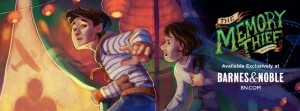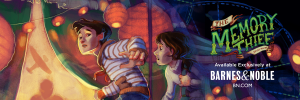Bryce Moore's Blog, page 152
May 4, 2017
A Short Recap of My Trip to DC

I headed back to Maine today, after quite the trip to Washington DC. I was part of the Maine delegations for ALA’s National Library Legislative Day. In a nutshell, this meant that on Monday I attended meetings where ALA leaders went over the main things they wanted members of Congress to be aware of. Different legislative efforts and funding changes. I also met with the other 5 members from Maine, and we figured out how best to approach Tuesday, where we met with each of our representatives.
A few observations on those meetings. First off, I was amazed at how . . . young almost everyone was that we met with. We had appointments with Senator Collins, Senator King, Representative Poliquin, and Representative Pingree. The two senators met with us in person. The two representatives were unable to. However, in each case, most of the meeting consisted of us meeting with their aides. We had maybe 5 minutes with Senator Collins, and about the same with Senator King. Long enough to chat, shake hands, take a few pictures, and that was that.
The aides mostly looked fresh out of college. I don’t think of myself as ageist, but it definitely felt strange to be with a contingent of library professionals who have decades of experience in the field, and we’re all speaking about our needs with people who look surprisingly similar to the students I teach in library classes each day. In some cases, I was impressed to see how well they understood the political landscape. In others, not so much.
Does anyone have any idea why there don’t seem to be many older aides in DC? From what I heard, that’s pretty much par for the course.
In any case, the meetings went well. Senators Collins and King are both avid library supporters, so it very much felt like we were preaching to the choir. Representative Pingree also has a long record of voting to support libraries. It was interesting to see how nice the Senators’ offices were, and how scrunched together the Representatives seemed to be. Definite difference, and every building you go into has metal detectors and security at each entrance.
I found some time to do some other things while in DC, though. Tuesday afternoon I walked 10 miles, visiting most of the Smithsonian museums. There are a lot of them, and they’re quite spread out. It was a blast to see some Van Goghs, Monets, the Hope Diamond, the Star Trek Enterprise model from the original series, mummies, and more. And I had some great food, of course. Fantastic gelato at Pitango’s, super pasta at Old Ebbitt Grill, tasty pizza at Matchbox, and more. I met with my agent, and a couple of guys I had been on my mission with in Germany. (Crazy to see them, almost 20 years later. When did we get older?) I also had the chance to visit with my brother’s family on Sunday afternoon.
It’s been a good trip. I understand a bit better how politics work here in America. That’s always a plus. I need to get my family down here with me sometimes. Until then, I’m looking forward to getting home and having at least a few days where I don’t have to worry about suitcases and travel plans.
April 28, 2017
Heading to DC

I’m off to Washington DC on Sunday. Heading down as the Maine Library Association’s representative for National Library Legislative Day. What does that mean? It means on Monday I’ll be learning all about the different issues the American Library Association is pushing this year, and then on Tuesday, I’ll be meeting with Maine’s senators and representatives to go over those issues. Senator Collins, Senator King, Representative Poliquin, and Representative Pingree. (Sometimes the actual senators/representatives can’t make the meeting, and we talk with their staff instead. I’ll keep you posted.)
It won’t just be me. (That would be . . . quite intimidating for me. Yikes.) I’m with a group of librarians from Maine who are all much better spoken than I am. (As a side note, do you ever step back and wonder why in the world anyone listens to your opinion? I mean, when did I get to the point that I’m flying down to DC to meet with politicians? For the love of all that’s good in this world. where are the adults? You know. The people in charge. Life was much simpler when I could just be a kid and assume big stuff was getting done, and stay focused on what was really important: video games, television, and books. Come to think of it, I still stay pretty focused on that holy trinity . . .)
For a guy who dislikes planes, I’m going to be on an awful lot of them over the next two months. I’ve got two trips to DC, a trip to Utah, and a trip to Chicago followed by Utah, all between now and the beginning of July. Meanwhile, I need to get my draft of MEMORY THIEF 2 finished as soon as I can. I’m almost through with reading the first draft, and I see so many things that need to be fixed. It’s a little daunting.
Good thing I can just worry about little things like meeting with senators over the next few days.
Wish me luck! I’ll keep you posted on the details.
April 27, 2017
Book Review: Three Times Lucky
 Three Times Lucky by Sheila Turnage
Three Times Lucky by Sheila Turnage
My rating: 5 of 5 stars
This book was a joy to read from start to finish, and it’s clear to see why it got the accolades it did.
You don’t come across many middle grade murder mystery books. (At least I haven’t. Maybe it’s a whole subgenre I’ve been missing out in.) I’ll be honest, though: the plot isn’t the driving force behind this book, and it’s not the reason I loved it as much as I did. Sum it up, and it sounds appealing, but less than enthralling. Young protagonist Mo LeBeau is a sixth grade girl with a strange first name and a unique history. She was found in the middle of a hurricane by a man with amnesia, and the two of them were taken in by a woman in a small southern town. Together, the three of them run the town’s cafe. Life is good, but quirky, until a local gets murdered, and Mo takes it on herself to figure out whodunnit.
The plot itself is serviceable, and you certainly want to find out the truth, but the biggest draw to this book is 100% the voice. It’s rare that I start a book and fall in love with the voice as easily as this. Told in first person, the whole novel is a delight, as we see the world through Mo’s eyes. She’s sassy, fearless, and inquisitive. Far from a perfect person, she nevertheless shines as inherently *good*, no matter what else might be happening around her. I would probably happily read a few chapters by Mo that recounted nothing more than what she did during a week of school.
The plot does tend to unravel a bit at the end, but it didn’t matter to me. I was having a great time listening to Mo and getting to know her better. If you’re looking for a quick, fun read, you should 100% check out Three Times Lucky.
April 26, 2017
All About Louis: Memory Thief Chapter Six and Seven
Welcome to another chapter annotation for THE MEMORY THIEF. Up this week? A bit of discussion on Louis as a character, along with some info on how he changed over the course of the book. As always, this is intended for people who have finished the novel, so I’ll be talking about the ending and everything in between. Don’t read if you don’t want spoilers.
In the original draft of THE MEMORY THIEF, Louis is a kind old man who dies at the end of chapter six, as he does now. But the big difference is that he stays dead. There was no “remnant” of him left to instruct Benji. He gives his ability and knowledge of how to be a Memory Thief to Benji all at once, and he’s gone. Benji just has all the information at his mental fingertips right off the bat.
This was problematic, because it made it so Benji had to sort of think through things that he technically already knew. It was very clunky, and made for big chunks of exposition that didn’t work at all. To fix this, I made Louis show up as he does now in Chapter Seven in his afterimage form. (My ode to Obi Wan.)
This helped in many ways, because it gave Louis a bigger role, and allowed him to have more one on one time with Benji. It also let Benji get a crash course on how to use his abilities in a way that makes sense and is interesting. As a matter of fact, I ended up having Louis play an even bigger role after that first draft. He would pop up now and then at sporadic times to comment on what Benji was doing and to give him advice and input. He ultimately helped Benji through the depression trap Genevieve sets for him late in the book, and disappears there.
On the one hand, that was great. Benji had a great relationship with the old man, and when Louis finally disappears, it made a big impact on him. But it presented other problems. The biggest was that Benji had help throughout the novel. He had an expert on hand to conveniently show up and offer solutions to whatever pickle Benji found himself in. This ultimately proved to be too much. It didn’t feel like Benji was solving any of his problems, which cheapened the feel of his victories.
In the end, Louis stuck around for a chapter, and then disappeared. Worse yet, we discover later in the book that Louis had been a real jerk years before. (Something which presents bigger implications. How much do Memory Thieves get warped by their ability? Is it inevitable? It corrupted Louis. It corrupted Genevieve. What will happen to Benji?)
So Louis ended up having quite the range of experiences over different drafts of the book. I think we ended up in a good spot, but I do miss some of the interactions he and Benji had way back when.
As a side note: I wonder how many readers noticed that Benji’s name connects to Louis. I’m doubting very many, since a lot of readers appear to be pronouncing Louis’s name the French way, like King Louis. I always thought of it being pronounced like Lewis. And back in Chapter One, Benji’s mom yells at him and Kelly. “Benjamin Clive and Kelly Joy Lewis” (Truly geeky people will get the reference there. His parents named the twins’ middle names after CS (Clive Staples) Lewis and his wife Joy.) But anyway. Benji’s last name is the same as Louis’s first name. Make of that what you will.
April 25, 2017
Sixteen Years of Marriage
I was terrified of getting married. It’s something I think I’ve discussed here on the blog before, but it bears repeating. My parents had divorced when I was young, and it really threw me for a loop. It was no fun at all, and I wanted to do everything I could to ensure I spared my kids from having to go through that. But how in the world could I know the person I was marrying was the *right* person?
I’m a planner, and so I had come up with lots of different plans to be certain. I would have to know the girl for at least a year. Probably more like five. We’d date for a long time, and I’d want to get to know her in all sorts of situations. I’d want to meet her parents. See where she grew up. Have many long conversations about everything under the sun. I’d want to date widely, so that I had as much experience with different personalities that I could. What if I met someone after I got married that I ended up being better matched with?
There was just no way to know. I was convinced of that. It’s why I went on so many dates after I got back from the Jerusalem Center. There was one girl I thought I’d end up marrying. That had been the plan, at least. I’d known her for years. All the dates were just there to make 100% sure I knew what I was doing.
And then I went on the first date Denisa, and all those plans went out the window.
Our first date was November 4, 2000. We were secretly engaged by New Years. We eloped April 25, 2001, less than 6 months after that first date. I hadn’t met her family. I hadn’t even been to her home country before, let alone her home city. We’d had plenty of discussions, but as for knowing and seeing her in tons of different situations? I didn’t have any of that.
Anyone who’s met Denisa obviously knows why that all got forgotten. When you meet someone like that and discover she’s actually in love with you back, you’d be certifiably insane to let her get away. And when I look back at 16 years of marriage, I realize how little all my planning really would have come to.
So much of marriage is about adaptation. Encountering surprises and changing. Parenting adds a whole new dimension. The big takeaway is you aren’t marrying that person for eternity. That person will change. You will change. Marrying, in my experience, turns you and your spouse into something else. You are no longer the single version of you. You’re a team. I don’t mean that in any sort of creepy way. I don’t mean you give up your individuality or anything like that. But your priorities change. Your definition of success changes. You could plan for all the different situations that might come up in life, but in the end, all those plans don’t amount to much, because you realize how little you knew at the time.
I was 22 when I got married. I had no idea the sort of challenges that would end up facing us. Family passing away. Career plans drastically changing. Figuring out that whole “parenting” thing. Moving states. I get a real kick out of the thought that I could plan for all of that when I was that young. I don’t think I could plan for all of it now, even with 16 years of experience under my belt. And as time goes on and I see how much still lies in store for us, it would be even more daunting. As I see my parents and friends deal with changes and tragedies and blessings and more, it just shows me how little I know, even now.
If I knew what being married was really like, I think the younger version of me would have been even more terrified. Overwhelmed. But even knowing all of that, I think that younger version of me would still have jumped at the chance to marry Denisa. Sometimes great ideas just glow with how wonderful they are. By far the best decision I have ever made in my life was to ask Denisa on that first date. Everything else changed because of that.
Happy anniversary, Denisa. I love you.
April 24, 2017
Happy Birthday, Tomas!

It’s finally happened. I’m the parent of a teenager. Tomas turned 13 yesterday. Write a blog long enough, and you start to run out of new material to cover. I’ve written multiple posts on his birthday over the years. (For the record, here are my posts when he turned five, six, eight, nine, ten, eleven, and twelve. Somehow I skipped seven.) Looking back over them, it’s interesting to see how he’s changed and how my posts about him have changed. I’ve tried to chronicle what he’s interested in from year to year, so I’ll keep that up now.
Many things haven’t changed from recent years. He’s still a big Doctor Who fan, loves watching Star Wars and Marvel movies, has a great time playing Magic and other board games, and loves to read. But like me, his particular focus from time to time changes and morphs. He had his BeyBlade stage years ago. There was his Cars stage. Pokemon. Transformers. 3DS.
These days, his two main passions are his Minecraft YouTube channel and his Nerf guns. He will happily tell you all the many tweaks he wants to make to his current pride and joy: a Nerf Stryfe he purchased a few weeks ago. He’s planning on upping the motor, swapping out the trigger lock, and repainting it eventually. He did a ton of research to figure out which Nerf would be the best for him, eventually settling on the no-longer-manufactured Stryfe, and buying it when he could find a new one on sale. He got some add-ons for it yesterday for his birthday, and he was very pleased.
But the Minecraft YouTube channel gets even more of his attention. One of the first things he did yesterday was set up a Patreon account for himself, since they have a rule limiting accounts to those age 13 and up. So the very second he could get on the computer (he had to wait until 4pm, which is when we let electronics start being used on Sundays in our house), he went straight to Patreon and registered. He takes these videos very seriously, doing his best to come out with a new one every Wednesday. To make that happen, he has to record the video, edit it, compose music if he needs to, and then find a time to upload it to YouTube. He tracks his views and his subscribers like a hawk, and he’s always doing whatever he can to make his subscribers happy.
So if you’re looking for something to get Tomas for his birthday, the thing he would probably love would be for you to subscribe to his channel (free!) or (better yet, he would say) support him on Patreon. After much deliberation, he decided to base his support tiers on a monthly basis. In other words, you can sign up to give him $1, $5, or $10 each month. At $1, you get behind-the-scenes info on what he’s up to. $5 gets you an exclusive video, and $10 gets you all of that, plus a shout out in his videos and your name in the credits. (He had made abut $1.50 through YouTube ads up until a few weeks ago, when YouTube changed its rules so that only people with 10,000 views can monetize their videos.) So Patreon is his only hope of bringing in money for now. (He’s had about 1,000 views so far. 9,000 more to go!)
In any case, it seems like he had a good birthday. We watched the first part of Iron Man 2, played some Magic, had boxed mac and cheese for dinner and chocolate chip cookie pie for dessert. He’s definitely growing up: becoming more serious about school and his responsibilities around the house, and holding his own in any game he plays on the planet.
Happy birthday, Tomas. Here’s hoping your Patreon just explodes with success.
April 21, 2017
Revising on a Fast Turnaround
If you’ve been following me on social media, you’ll know that I finished the first draft of MEMORY THIEF 2 last Saturday. It clocked in at around 66,000 words, and I’m pretty happy with it, as far as first drafts go. It does the main thing I want my first drafts to do, which is get the basic events of the book down on paper, so that I can take a look at what’s happening and see where I need to revise things into shape.
I’m really big on revision. My first drafts need a lot of work to bring them up to shape, mainly because I typically make most of them up as I go along. It isn’t until the whole draft is finished that I really understand what the book is about. I get that isn’t necessarily the most efficient way to write a book, but it’s what works best for me.
My usual approach is to set the first draft aside for a half year or so after I finish it. Go off and write a different book, or else revise a book I’d written earlier. The thought behind this is that I’ll have forgotten enough of the book to be able to read it with “fresh eyes,” seeing it as if I hadn’t written it. I’m always worried I’ll go easy on a book I wrote, not being able to see the imperfections that will leap off the page to others.
With the MEMORY THIEF sequel, I don’t have this luxury.
The final draft is due in August. If I took 6 months off, I wouldn’t be coming back to the book until October, two months late. So I can’t very well sit back and do nothing. And as I thought about the problem, I realized some of this might just be that it’s time for me to handle my revisions differently. When I’ve revised MEMORY THIEF and VODNIK, there were times when I had to just plow through a revision, and forget all about needing fresh eyes.
So two days ago (just four days after having finished the first draft) I printed out the book and am rereading it from the beginning.
Right off, I’m seeing some good things from this approach. I remember what happens at the end of the book, for one thing, so I can spot places where I need to set things up better than I thought I had. I certainly feel like I’ve been able to write plenty of comments down for ways to improve the book. And somehow, I forgot enough about the beginning that I’m still feeling like I’m encountering it fairly fresh.
Some of this might changes as I get further into the book. Will I still be able to be objective when it’s with material I just barely wrote a month ago? We shall see. But I’m always open to switching things up with my writing. Maybe I’ll discover I’ve been sitting on books too long, or unnecessarily. Certainly having an editor already on board to look at it and give me feedback makes a huge difference.
I should also note that with this draft, I had a pretty strong outline that had already gotten feedback from my agents and editor, which is different than how I’ve worked in the past. I still anticipate making changes in the revision, but the skeleton should be fairly strong and constant. That will no doubt make a big difference.
I’m not sharing much in the way of details of the sequel just yet, mainly because I want to make sure my editor is happy with the book in general before I say too much about it. I don’t want readers to be getting excited for something, only to have it totally get switched on them before it gets published. So stay tuned for more information . . .
April 20, 2017
Heavy Meta #10: Library Funding
There are some potential troubles for libraries in the future, both nationally and in Maine. Kelly and Bryce discuss what these are and what their impact might be.
April 19, 2017
The Snowball Effect: Memory Thief Chapter Five
Welcome to another chapter annotation for THE MEMORY THIEF. This week, we’re up to chapter five. As a reminder, these are really intended for people who have already read the book and want to find out more about the process I went through to write it. In other words, plenty of potential for spoilers.
I mentioned in an earlier annotation how I’d turned Chris into Kelly, eliminating Benji’s best friend, and giving him a twin sister, instead. (I promoted his younger sister in the first draft, Kelly, to full twin status.) This chapter really highlights the benefits of that earlier decision.
In the first draft, Benji goes home after he and Chris meet Genevieve for the first time. He tells his little sister, Kelly, some bedtime stories when she can’t fall asleep. The next day, he heads into school and discovers Chris has forgotten who he is, so he goes to Genevieve and confronts her in a scene that plays out mostly as it does now.
On the surface, that doesn’t sound like too huge of a switch, but when you look at the impact it has on Benji, it becomes clear how important it was. For one thing, having Kelly be right there with him at home (in the revision) means that he has no escape from the problem of Genevieve. In the original draft, Chris makes the call to go back to Genevieve on his own. Benji shows up at school the next day and finds out about it in class. It’s upsetting, but sudden.
In the revision, he’s stuck with the problem. Kelly’s there, in his house, deciding what to do. She comes to his room at night, letting him know she’s going. He talks her out of it, but then she goes anyway, and so he feels personally guilty that he didn’t try harder. Better yet, he wakes up and sees she’s missing. He has the whole morning to dwell on the problem and stew in it. He doesn’t know where she is or what happened, so when he gets to school and finds her, he’s relieved.
Only to find out she’s forgotten he exists. It’s one thing to have your best friend forget you or be mean to you at school, but to have your own twin do it? I think that raised the stakes in many different ways, and I loved the change. Through this process, a series of small changes can really snowball, so that by the end of a revision process you have an entirely different book.
Sometimes when I’m writing, I’ll start off thinking of the book as a riff on a movie. One novel, TARNHELM, was almost a straight up YA adaptation of The Maltese Falcon for the first draft. That’s where it started, but as I wrote it and revised it, the changes kept stacking one on top of another, until by the end it was drastically different. (If only it would get published one day, so you could see!)
I always have to remind myself that, at least for the way I write) the first draft of a book (or even just the premise of the book to begin with) is only the first step on a path that leads me to the final draft, which might end up somewhere very different than I first thought. For me, that’s one of the main reasons I write. To explore that path and find out where it ends up.
April 18, 2017
Developing Self-Confidence
 As I work on raising happy children, one of the things I keep doing is looking at myself. What makes me happy? What qualities or skill sets have I developed that help me most? And I think one of the biggest is the ability to be self-confident. Specifically, the ability to be able to ignore what other people think I should be doing (or wearing or thinking or saying) to instead have confidence that what I am doing is good for me.
As I work on raising happy children, one of the things I keep doing is looking at myself. What makes me happy? What qualities or skill sets have I developed that help me most? And I think one of the biggest is the ability to be self-confident. Specifically, the ability to be able to ignore what other people think I should be doing (or wearing or thinking or saying) to instead have confidence that what I am doing is good for me.
(There’s the flip side of this, of course, which is dangerous: being unwilling to acknowledge that what I’m doing is harmful to myself or others. Balance in all things, but today’s post is on developing self-confidence.)
There are two big things that come to mind when I think of how I’ve become self-confident. The first is a small 6 second clip from The Jerk. In the movie, Steve Martin’s character has become fantastically wealthy. He has all the money he’ll ever need. And what does he do with it? He spends it on trying to become the “cool” people he sees in the media. This is best summed up in this clip, where he’s been trying to recreate a drink he’s seen in commercials, because he wants to “Be Somebody.”
For me, this represents just how shallow and useless trying to “be somebody” is. You can do whatever you want to try and look cooler or fit in. You can follow the herd, but in the end, you’re still the same person you were before, just with a stupid drink and a tiny umbrella in it. Once you can realize that having something or wearing something doesn’t actually change anything, you can break outside the constant drive to conform.
The second big thing is a broader concept that I don’t, unfortunately, have any short movie clips of. It’s a principle I’ve heard years ago, and it’s stuck with me: Avoid the need for external validation. I’ll call it the “Who’s a Good Boy” principle, because it always reminds me of dogs. Dogs are all about the external validation. They want to be told what a good boy they are. So they’ll eagerly do what you ask, so they can be rewarded. Cats, on the other hand, embody internal validation. They know just how awesome they (think they) are, and so they don’t care what in the world you do or say. They just go on doing what they want.
In people, of course, this looks a little different. External validation for people (in my opinion) means you get an actual “thing” that shows you you’ve succeeded. It’s different from the first “Be Somebody” concept because the thing in this case is something you need to earn. You can’t just buy it. So it might be getting a promotion at work. It could be winning a prize in a contest. For a lot of writers, it’s getting that fabled book deal.
Don’t get me wrong. Getting promoted or having your book published is lovely. But it can’t be the main reason you’re working or writing. Or at least, it’s really better if it isn’t. Because external validation is almost always out of your control. You can write the best book you can, and things might not pan out in your favor. You can work as hard as possible, and someone else might get that promotion. And then what are you left with? No validation at all, and that’s a crummy place to be in (especially when you’re downtown and need someone to pay your parking).
It’s much better to be doing something because you want to do it. Because you enjoy doing it. Down that path, you’re happy because you’re doing what you want, not because someone gave you a Scooby Snack. External validation also seems to be the root of peer pressure. You want the praise of your friends, so you do things you wouldn’t necessarily do otherwise.
How do I try to avoid that trap? I ask myself if I’m enjoying what I’m doing, whatever it may be. If I’m not, then I ask myself why I’m doing it. Sometimes you do things you don’t like because you have to. That’s life. But if the only reason I’m doing something is so I can get something else, it’s a good idea to examine that “something else” and see how worthwhile and necessary it is.
If my kids could all grow up to know they don’t need to fit a mold to be successful or happy, and they don’t need someone coming and giving them something to be happy either, then I think they’d be well on their way to becoming happy people.
How about you? What techniques, approaches, or gems of wisdom do you use as you do your best to raise self confident kids?







